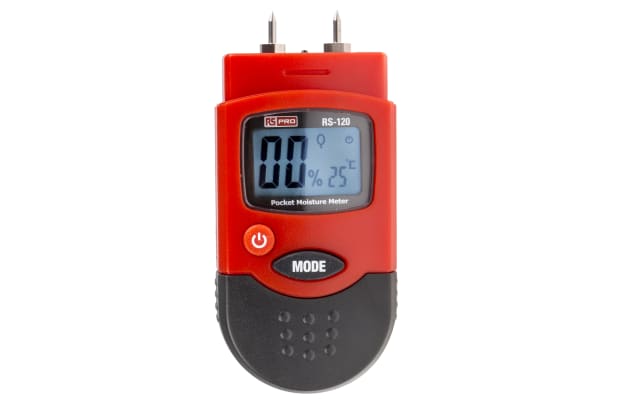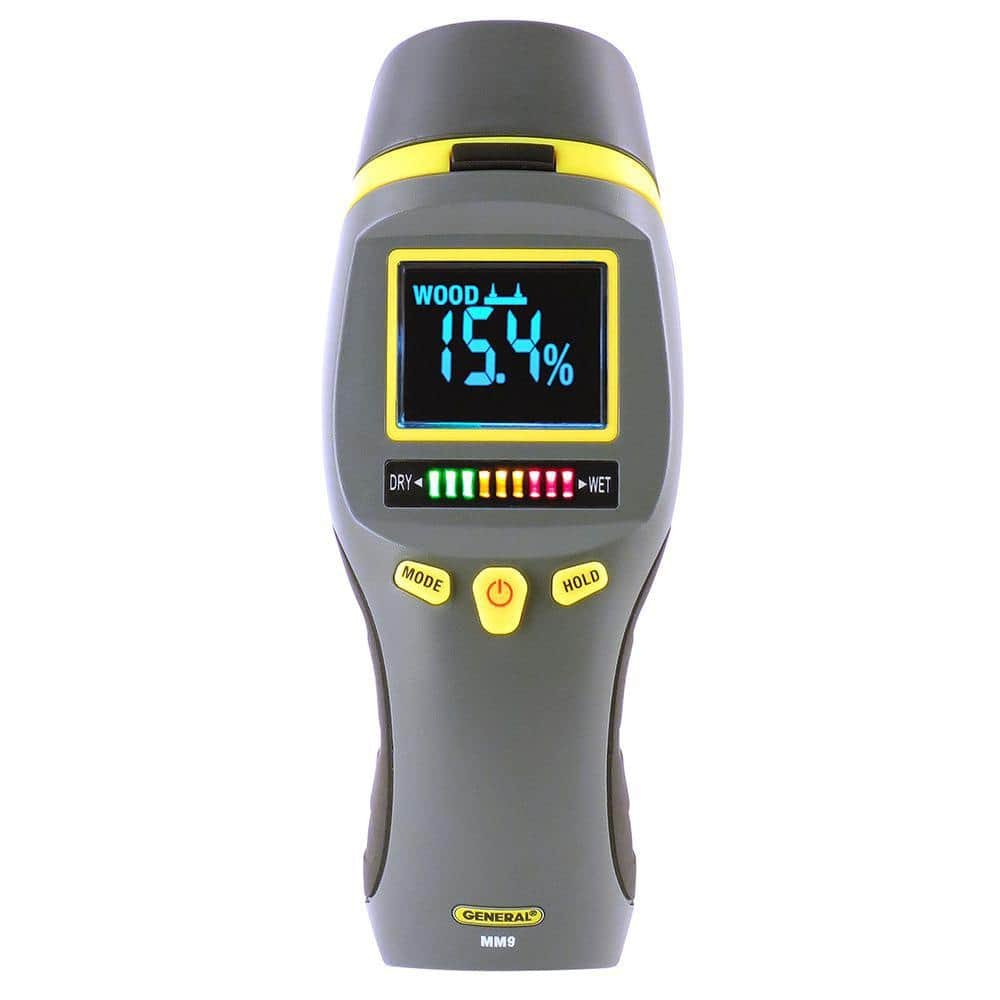The Ultimate Guide to Moisture Meters: A Comprehensive Overview and How They Can Save You Money
Dampness meters serve as essential devices in finding and keeping track of moisture web content in materials, helping in avoiding pricey damages and ensuring the quality of items. Understanding the subtleties of various types of wetness meters, their applications, and the possible cost-saving advantages they use can be a game-changer for specialists and organizations alike.
Kinds Of Moisture Meters
Different sorts of dampness meters are available for different applications in different markets. One usual type is the pin-type wetness meter, which gauges the electric resistance in between 2 pins inserted into a material. This kind appropriates for wood, drywall, and various other structure products. Pinless moisture meters, on the other hand, use electro-magnetic sensor plates to check a bigger area without creating damage to the material's surface area. Moisture Meter. These meters are suitable for swiftly assessing moisture levels in large locations such as wall surfaces and floors.

Additionally, there are also specialized wetness meters designed for details products like soil, grain, or hay. These meters give exact wetness analyses customized to the distinct buildings of the product being evaluated. Infrared wetness meters measure the thermal residential or commercial properties of a material to determine its dampness material non-invasively, making them beneficial for applications where pin or pinless meters might not appropriate. Understanding the different kinds of wetness meters available can help sectors choose one of the most appropriate tool for their particular dampness measurement needs.

Benefits of Using Dampness Meters
Dampness meters use indispensable advantages in properly evaluating and monitoring wetness degrees in diverse materials and atmospheres. One of the key advantages of using moisture meters is the avoidance of potential damages created by excess moisture.
In addition, making use of wetness meters can cause increased energy performance. By determining areas with high moisture degrees, such as leakages or bad insulation, changes can be made to enhance energy preservation and minimize utility prices. In agricultural setups, dampness meters play a vital role in enhancing plant returns by allowing farmers to keep an eye on soil dampness levels and make notified irrigation choices. In general, the benefits of making use of dampness meters extend throughout various sectors, providing cost-effective services and advertising better quality control techniques.
How to Pick the Right Dampness Meter
Choosing the suitable moisture meter includes taking into consideration crucial factors such as product compatibility, measurement variety, and calibration precision. When picking a wetness meter, it's necessary to make certain that the meter appropriates for the specific product you will be testing. Various products have differing electrical homes that can impact moisture readings, so selecting a meter developed for your material is important for exact outcomes. In addition, consider the measurement variety of the moisture meter. Make certain that the meter can identify moisture degrees within the range needed for your applications. Calibration accuracy is another essential variable to maintain in mind. Select a wetness meter with reputable calibration to make sure precise and regular readings. Some meters might require regular calibration changes, so comprehending the calibration procedure is necessary. By meticulously evaluating these variables, you can choose a wetness meter that meets your needs and offers precise moisture measurements for your tasks.
Correct Strategies for Dampness Meter Use

Price Financial Savings With Wetness Meter Applications
Just how can the strategic application of wetness meters lead to significant cost savings throughout different industries? In the agriculture industry, dampness meters help in determining the ideal time for collecting crops, avoiding excess or over-drying wetness that can impact the last product's high quality.
Similarly, in building, wetness meters help protect against expensive damages by finding moisture levels in building products, such visit this web-site as wood or concrete, which can result in structural concerns otherwise attended to promptly. By recognizing trouble areas beforehand, contractors can take corrective actions to prevent comprehensive fixings or replacements, ultimately conserving time and cash.
In addition, in the food handling industry, dampness meters are important for monitoring item quality and making certain compliance with safety and security guidelines. By precisely measuring wetness web content in food products, producers can protect against spoilage, preserve freshness, and reduce waste, resulting in considerable expense financial savings. Overall, the critical application of dampness meters is a valuable investment that can result in substantial price reductions and enhanced efficiency throughout various industries.
Final Thought
To conclude, moisture meters are useful tools for measuring and detecting moisture degrees in numerous materials. By using the ideal dampness meter and adhering to correct methods, individuals can efficiently protect against costly problems triggered by excess wetness. Buying a quality moisture meter can result in considerable expense financial savings in the future by determining prospective concerns at an early stage and making it possible for prompt removal. Ultimately, moisture meters are crucial tools for preserving the stability and long life of products and structures.
Moisture meters offer as indispensable devices in detecting and checking moisture web content in products, assisting in protecting against costly damages and making sure the quality of products. Infrared moisture meters measure the thermal residential or commercial properties of a material to determine its dampness web content non-invasively, making them useful for applications where pin or pinless meters may not be ideal.Moisture meters use invaluable advantages in precisely assessing and keeping track of Get More Information moisture levels navigate here in diverse products and settings. In agricultural settings, wetness meters play a vital duty in optimizing crop yields by allowing farmers to check dirt wetness degrees and make informed irrigation decisions.In final thought, dampness meters are valuable tools for identifying and measuring dampness levels in different materials.
Comments on “The Ultimate Overview to Choosing the Right Moisture Meter for Your Needs”